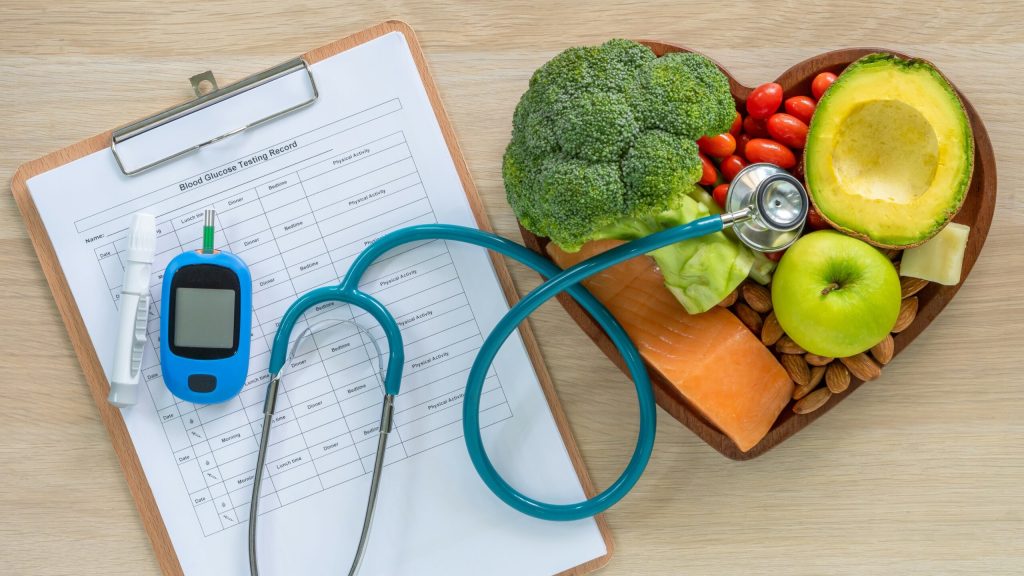As we age, our bodies undergo many changes. These changes affect everything from how we move to how we digest food. One of the most important factors in staying healthy as we grow older is maintaining good nutrition. The foods we eat play a vital role in how we feel, how well our body functions, and even how long we live. For seniors, proper nutrition becomes even more crucial because it can help manage chronic conditions, improve energy levels, and enhance overall quality of life.
In this blog post, we’ll explore how nutrition impacts senior health, what specific nutrients are important for older adults, and how seniors can maintain a healthy diet. Understanding the connection between food and health can make a significant difference in ensuring a healthier, happier life.
The Role of Nutrition in Aging
Aging is a natural process, but how well we age often depends on how we take care of our bodies. Nutrition plays a central role in this. As we get older, our metabolism slows down, meaning we need fewer calories than when we were younger. However, our need for nutrients remains the same or even increases. This makes it important to focus on nutrient-rich foods rather than those high in empty calories, like sugary snacks or processed foods.
Good nutrition supports the immune system, which can weaken with age. It also helps in maintaining muscle mass, which tends to decrease over time, leading to weakness and a higher risk of falls. Additionally, proper nutrition promotes healthy skin, aids digestion, and keeps energy levels up. Seniors who eat a balanced diet often report feeling more energized and less prone to illness.
On the flip side, poor nutrition can lead to many health problems, including malnutrition, obesity, diabetes, heart disease, and weakened bones. Seniors who don’t get enough of the right nutrients may also experience mental decline, making it harder to concentrate or remember things.
Key Nutrients for Senior Health
As seniors age, their bodies need certain nutrients more than others. These key nutrients are vital for maintaining good health and reducing the risk of developing age-related health issues.
Protein
Protein is essential for maintaining muscle mass, which naturally decreases with age. Seniors who do not consume enough protein are at risk of losing strength, making it harder to carry out daily activities. Protein also helps with the repair of tissues and supports the immune system.
Calcium and Vitamin D
Bone health becomes a major concern for seniors, as the risk of osteoporosis and fractures increases with age. Calcium is necessary for strong bones, and vitamin D helps the body absorb calcium more effectively. Without enough of these nutrients, bones can become brittle and weak. Foods rich in calcium include dairy products, leafy green vegetables, and fortified foods. Vitamin D can be obtained from exposure to sunlight and from foods like fatty fish, eggs, and fortified milk.
Fiber
As we age, our digestive system slows down, and constipation can become more common. Fiber helps keep the digestive system moving smoothly, reducing the risk of constipation and other digestive problems. Fiber also helps lower cholesterol and control blood sugar levels, which is especially important for seniors with diabetes.
Vitamin B12
Vitamin B12 is important for brain health and the production of red blood cells. As we get older, our bodies become less efficient at absorbing this nutrient from food, making it essential to ensure seniors get enough. A deficiency in B12 can lead to fatigue, memory problems, and mood changes.
Potassium
Potassium plays a role in maintaining healthy blood pressure. It also supports muscle function and helps the heart beat properly. Many seniors don’t get enough potassium, which can lead to high blood pressure and other cardiovascular problems. Good sources of potassium include bananas, oranges, potatoes, spinach, and beans.
Water
Staying hydrated is often overlooked, but it’s essential for senior health. As we age, our sense of thirst diminishes, meaning many seniors don’t drink enough water. Dehydration can lead to confusion, urinary tract infections, and even hospitalizations. Encouraging regular fluid intake, whether through water, herbal teas, or hydrating foods like fruits and vegetables, is important.
Challenges Seniors Face in Maintaining Good Nutrition
While it’s clear that good nutrition is vital for senior health, many older adults face challenges that make it difficult to maintain a healthy diet. Understanding these challenges can help seniors, caregivers, and families find solutions to improve nutritional intake.
One common issue is a loss of appetite. As we age, our taste buds may change, and some foods may no longer seem appealing. Medications can also affect appetite and how food tastes. Dental issues, such as missing teeth or poorly fitting dentures, can make it harder to chew certain foods, leading seniors to avoid nutritious options like fruits and vegetables.
Limited mobility is another challenge. Seniors who have difficulty getting around may find it hard to shop for groceries or prepare meals. This can result in a reliance on convenient, less healthy options, such as pre-packaged meals, which are often high in salt and low in nutrients.
Isolation can also play a role in poor nutrition. Seniors who live alone may not feel motivated to cook or eat meals regularly. Eating is often a social activity, and without the company of others, it can lose its appeal.
Finally, financial constraints can impact a senior’s ability to purchase nutritious foods. Healthy options like fresh produce and lean proteins can be more expensive than processed or fast foods, making it harder for seniors on a fixed income to maintain a balanced diet.
Tips for Improving Senior Nutrition
Despite these challenges, there are ways to ensure seniors get the nutrients they need. Caregivers and family members can help by preparing simple, healthy meals and ensuring the senior’s pantry is stocked with nutritious options.
Eating smaller, more frequent meals can also help when appetite is low. Adding herbs and spices to meals can make food more flavorful and appealing, especially for seniors who have lost some sense of taste. Soft foods like soups, smoothies, and mashed vegetables can make eating easier for those with dental problems.
For those with mobility issues, services like grocery delivery or meal preparation programs can make a big difference. Seniors can also benefit from eating in social settings, whether at community centers, senior clubs, or family gatherings.
Conclusion:
Good nutrition is one of the most powerful tools we have to support healthy aging. By understanding how food affects the body, seniors can make informed choices that lead to better health and well-being. Ensuring that seniors get the right nutrients can prevent or manage chronic illnesses, improve energy levels, and boost both physical and mental health.
While there are challenges in maintaining a nutritious diet as we age, there are also many ways to overcome these barriers. With proper support and a focus on nutrient-rich foods, seniors can continue to live vibrant, healthy lives.
Taking the time to focus on nutrition isn’t just about living longer—it’s about living better. A balanced diet can make all the difference in how seniors feel each day, giving them the strength, energy, and clarity to enjoy life to the fullest.

